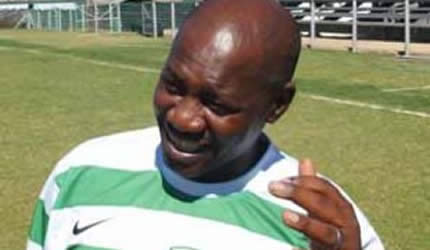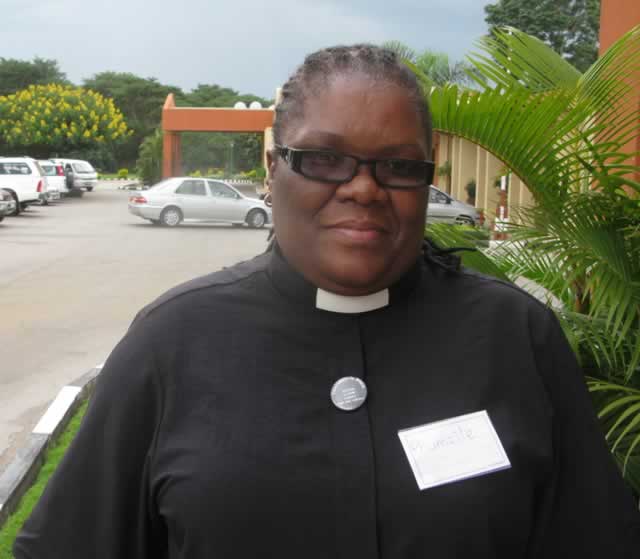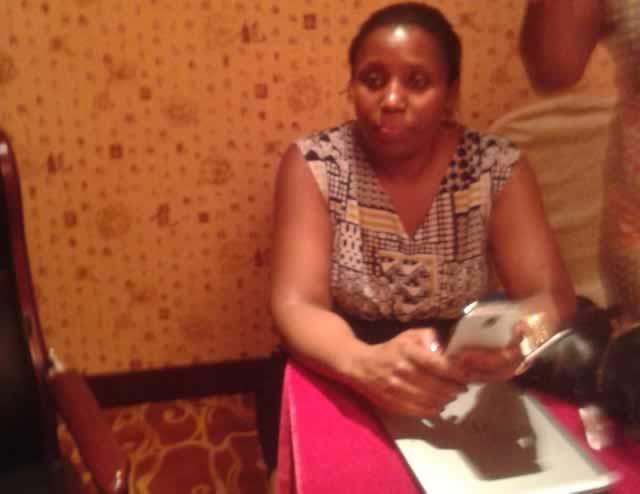Aids-free generation is possible
mothers give birth to HIV-negative babies through enrolling for the prevention of mother to child transmission programme.
Why the passion, one is bound to ask? A trained counsellor since 2001, Mrs Chakaipa has not looked back and has seen the face of the HIV epidemic getting “normal”.
Then in 2001 when she first found out during a routine HIV testing and counselling session in Chitungwiza, it was frightening as the face of epidemic was death.
“In 2001 testing HIV positive was a death sentence. All the people I had known were either very ill, gaunt, lying at home waiting to die, so that diagnosis was scaring to say the least,” she said at a workshop facilitated by the National Aids Council, their partners and EGPAF for sub-editors in Chinhoyi last week.
Mrs Chakaipa is a mother of three and her last child born in 2001 is HIV-free. Thanks to the early intervention she got at her local clinic.
“My husband was serving in the DRC and coming back home with such a result was a challenge. I had to live as I had two other children to take care of. The logical thing was to get informed so I became active at the clinic and as a person who had 5 O-Levels I was selected to attend further training in HIV issues with the UZ-Dart,” she said.
The soft-spoken Mrs Chakaipa said she did not have to wait for the return of her husband from his call of duty because this was a life and death issue.
‘I decided that by the time my husband would be back I would be in a position to even help the community and family,” she said.
After some months her husband came back and she disclosed her status.
“It was difficult but I had to tell him. He had asked that I register at Harare Hospital so I told him that I had registered for ante-natal at the local clinic because they offered many services. They taught pregnant mothers dietary issues, had exercises weekly and also offered blood screening. For that reason I had decided to use the local clinic,” she said.
Mrs Chakaipa said that she finally dropped the bombshell that she had tested for HIV.
“I told my husband that I had a full blood count and an HIV test too. I had been found to be HIV positive and by now had completed a counselling course,” she said.
Mrs Chakaipa said she did not blame her husband as she had been counselled and with her being a trained counsellor, she knew the blame game would not work. She therefore encouraged her husband to get tested too.
“He went for tests and his results came out positive too. I stood by him, helped him accept since in those years it was difficult to be HIV positive,” said Mrs Chakaipa.
Mrs Chakaipa continued with her community work and that time many people were bed-ridden.
“My community was found in the thick of the epidemic crisis and I became a pillar to those in need,” she said.
Mrs Chakaipa was given a single dose of nevirapine which she would take when labour commenced. Mrs Chakaipa gave birth to a bouncing baby girl, but was afraid to breastfeed.
“I was scared to breastfeed so I put our baby on formula milk,” she said.
‘The challenge came as my in-laws and relatives wanted to know why I was not breastfeeding, but as someone who had disclosed my status to my spouse and close family members, that hurdle was small and soon our baby turned 18 months and was ready to be tested for HIV,” she said.
Their baby was tested and the challenge came when she had to collect the results.
“For babies, the DNA PCR test where a dried blood sample was sent to Harare Hospital laboratory for tests. They use that test because using any other method would give a false result either baby has antibodies from the mother and that would show as being the baby’s,” she said.
Despite being a counsellor, she found it hard to go and collect the result.
“I was so scared that my husband had to collect the results. I accompanied him but remained outside the clinic premises when he went in for the results. He was asked why I had not come and he told them that I had travelled. He got the good news and only then did he tell them that I was outside. He came and took me back, I was so relieved and I give all the honour and glory to God,” she said.
With an HIV-free baby she had more reason to help her community. Today, she is the Elizabeth Glaser PMTCT Goodwill ambassador. She tells her story and offers the support that pregnant mothers need.
“I speak from an informed and affected position so I walk with pregnant mothers who need PMTCT services,” she said.
The Elizabeth Glaser Paediatric Aids Foundation sees this as the time to eliminate HIV infection in babies. They are reaching to mothers in 17 countries worldwide as they aim to have no child born HIV positive.
‘It is every right of a mother irrespective of her status to have a child. We as Elizabeth Glaser working with the parent health ministry reach out to the mothers who need PMTCT services,” said Caroline Zinyemba, communications and advocacy officer for the foundation.
“It is best that a pregnant mother books at 14 weeks or even earlier as this gives enough time to have her monitored. We provide regular check-ups, detailed information on PMTCT, counselling and testing as well as support and guidance on how to take care of yourself throughout pregnancy, child birth and breastfeeding period,” said Zinyemba.
“Pregnant mothers are put on what is called more efficacious regimen which means the mother gets the most effective drugs to reduce the risk of baby contracting HIV from the mother,” she added.
“The baby will also receive relevant HIV medication from birth until when he or she is tested at six weeks. If found out to be HIV negative they stop but if otherwise then baby is put on medication for life,” she added.
The foundation now works from 879 sites in Zimbabwe. It is possible that an HIV positive mother gives birth to an HIV-negative baby.






Comments